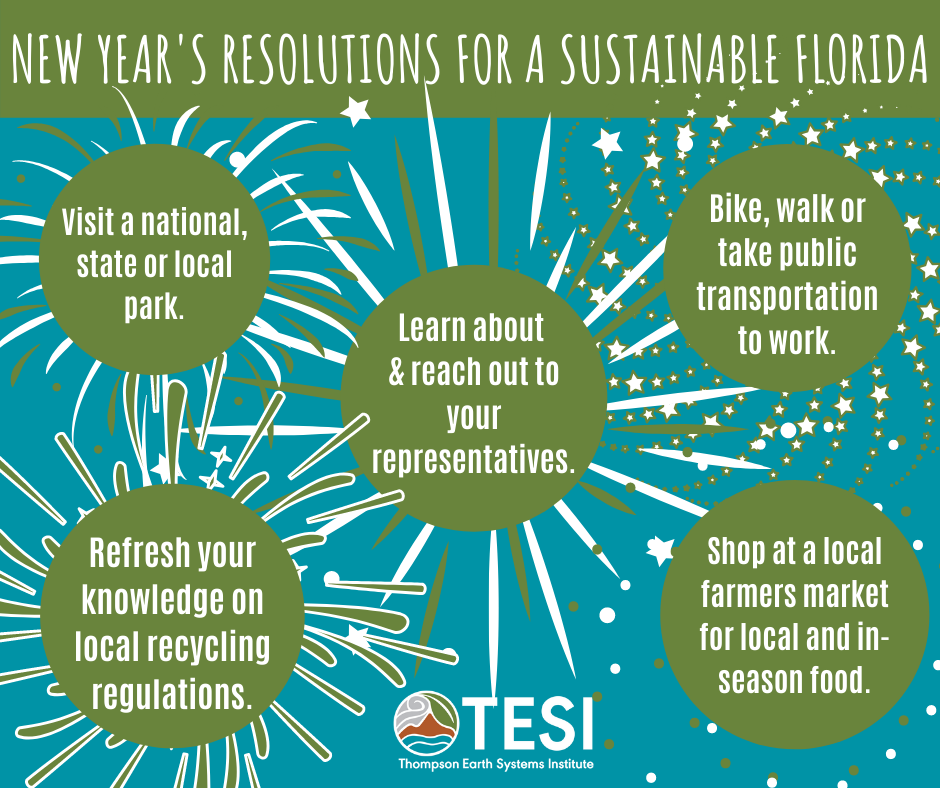Our team at the University of Florida’s Thompson Earth Systems Institute is gearing up for what we hope to be a productive 2020. As we reflect on the past year, we are each making New Year’s resolutions to adopt more planet-friendly habits.
We encourage you to commit to at least one sustainability-focused resolution for 2020. See below for some suggestions!
Visit a state, national or local park.
Take in the scenery, make note of the wildlife and learn more about your local environment. Parks and public lands help protect and improve air and water quality, prevent flooding, provide wildlife habitat, and serve as a place for children and families to connect with nature and recreate outdoors together. Find parks in your area by visiting: https://www.floridastateparks.org/
Make an effort to walk, bike or take public transportation to work.
Transportation accounts for about 20% of greenhouse gas emissions. Switch up your routine, save money and reduce your carbon footprint by choosing alternative transportation. While this can be a big change to take on, you can start small — try once a month to get started!
Refresh your knowledge on local recycling regulations.
Even when we make our best efforts to recycle, throwing one wrong thing in the blue bin can send the whole batch to the landfill. Take time to review your county’s recycling regulations so you can ensure everything is recycled as intended. Most county websites have a waste management section with this information. If you have trouble finding this information for your county, consider contacting your county’s recycling coordinator.
Learn the names of your state representatives and let them know which environmental issues you care about.
The Florida legislative session begins on January 14, 2020. In order for state government to function properly, representatives need to hear from their constituents. As the new year starts, make sure you know the names of your local representatives and how to contact them. You may have thoughts to share with them about a particular issue. Check out this blog post for tips on how to best communicate with state lawmakers.
Shop at a local farmers market for local and in-season food.
Buying locally sourced food reduces the amount of miles food needs to travel to get to your plate, which is good for the environment. As a bonus, this food is typically fresher than what you might find at a big box store, uses less plastic packaging and the money you spend goes directly back into your local community. Find a farmers market in your area by visiting: https://www.fdacs.gov/Consumer-Resources/Buy-Fresh-From-Florida/Community-Farmers-Markets
